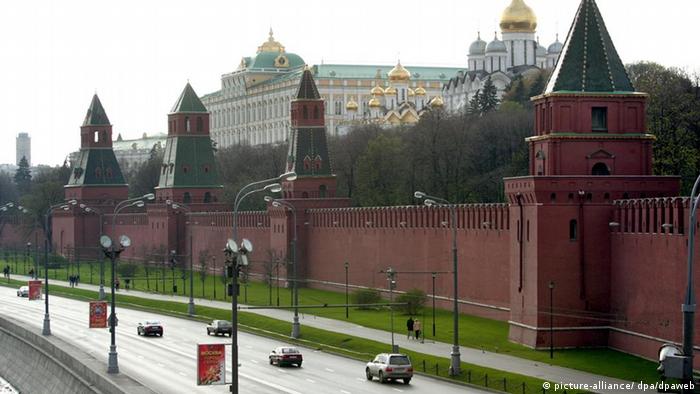After 18 years of protracted negotiations, Russia is finally set to become a member of the World Trade Organization (WTO), if parliament approves the deal. Germany hopes the move will improve bilateral trade relations.
German cars are at a premium in Russia. But whoever wants to own a Mercedes, BMW or VW needs to dig deep in their pockets. There's a 30-percent import duty on new cars on top of the regular sales price, and a 35-percent tarif on imported used cars. It's Moscow's idea to make buying foreign cars expensive and thus unattractive for Russian citizens. However, it's not only about cars, but about many other products as well.
Peter Balas, who represents the European Union's interests in WTO accession negotiations, calls that protectionism. Russia's been sealing off its markets systematically since 2006, he says, adding that based on a very open partnership and cooperation agreement with the EU, Russia took a number of measures to shelter its agriculture sector.

Heavy tarifs on wood and other items are a huge trade burden
"What followed were higher duties on wood and anti-crisis duties levied in 2009; duties which are still in place today," Balas complains.
Decline in direct foreign investment
Balas argues that Russia's policy hasn't necessarily done its economy a favor. He points to statistical data bearing out that direct investments in Russia by EU member countries have been declining considerably in recent years because of existing trade barriers, widespread corruption and red tape. Such an environment, he argues, has had a share in Russia's economic stagnation, low productivity and run-down infrastructure.
WTO accession would be important for both Russia and the EU, Balas maintains. "Russia will not be an interesting business partner and investment target as long as there are no secure and stable legal conditions for foreign trade partners," the EU representative says. But joining the World Trade Organization may mean a lot of changes which will support the Russian economy's modernization.
German companies sense brisk business
Considering Russia's modernization needs, it's first and foremost German manufacturing and engineering firms which are hoping for new business opportunities. Already today, Russia is their fourth-largest export market. If import duties were to come down to an average of 6.4 percent from 9.4 percent at present, trade activities could experience a boost.

Oil and gas account for 65 percent of all Russian exports
Last year, the German-Russian trade volume was put at 70 billion euros ($87.75 billion), the highest annual level ever achieved so far. If Russia were a WTO member, the bilateral trade volume could rise by another two billion euros annually. German carmakers also sense good business opportunities, should import duties on vehicles dip gradually to 15 percent.
But Hans-Joachim Henckel from the German Foreign Ministry's Foreign Trade Department, says one shouldn't be overly enthusiastic. There would only be improvements, if Russia stuck to the "rules of the game". "But doubts are in order, as intense debates in Russia continue about possible protectionist measures in many industries," Henckel warns.
Russians dread competition
Peter Balas for his part claims Russia is misusing the current pre-WTO period of transition. He says new protectionist measures in Russia are cooked up almost on a weekly basis, but that would run foul of WTO stipulations.
It's the Russian business community which has been resisting the notion of more liberalized trade relations. Domestic companies are afraid of competition from abroad, with foreign rivals being able to offer their goods at lower prices, should import duties come down. The Kremlin for its part is hoping for reduced consumer prices in the wake of WTO membership - a side effect that could help stifle rising dissatisfaction among ordinary Russians.
Author: Sabine Kinkartz / hg
Editor: Gregg Benzow
Editor: Gregg Benzow

Comments